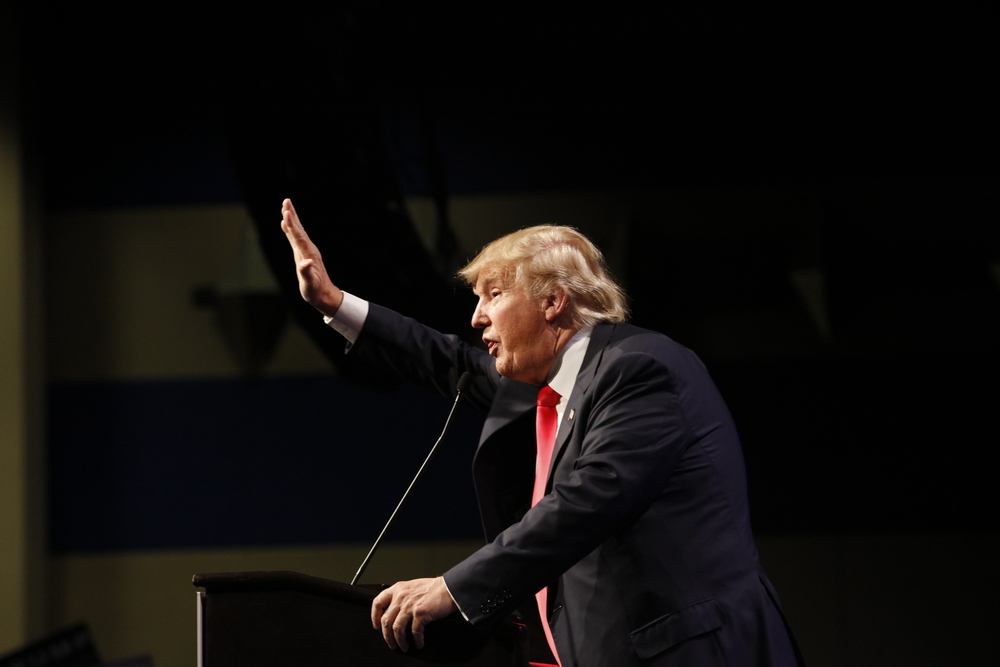Capital & Crypto
4 min read
Pro-Bitcoin Congressman Faces Questions as Trump’s Pick for Budget Chief

Rep. Mick Mulvaney, a South Carolina Republican and a long-time bitcoin supporter, nominated by President Trump to be budget director, defended his plan to support entitlement program cuts that Trump said he would protect, according to The Washington Post .
Mulvaney has been interested in bitcoin since 2014 after participating in a Small Business Committee hearing on bitcoin. He said it could influence monetary policy. He has accepted bitcoin donations.
Mulvaney and Jared Polis, a Colorado Democrat, launched the bipartisan Blockhain Caucus in September.
Speaking before the Senate homeland security and budget committees, Mulvaney said his positions on the national debt and spending are not in sync with Trump’s campaign pledges and statements from some advisers.
A ‘Straight Shooter’
Mulvaney, a self-described “straight shooter,” said he will continue speaking out about the rising costs of Medicare and Social Security. He said he plans to be “brutally honest” with the president.
Mulvaney said he favors raising the retirement age for Social Security to 70, but he said he would not cut benefits for current recipients. He said he supports means testing to qualify for Medicare.
Democrats warned that the nomination indicated Trump was changing his stated intention to protect entitlements. Mulvaney, for his part, said he was not aware of any change in Trump’s positions.
Deviations With Trump’s Promises
Sen. Bernie Sanders of Vermont, budget committee ranking member, said Mulvaney’s views are inconsistent with Trump’s campaign statements.
In regard to revelations that he did not pay $15,000 in taxes in connection with a household employee, Mulvaney said he discovered the error after his nomination. Similar charges plagued some nominees of former president Barack Obama, such as Tom Daschle, a former South Dakota senator nominated to head Health and Human Services. Mulvaney said he made a mistake and has paid the taxes he owed.

He questioned the need to raise the national debt ceiling, saying he believes the government should prioritize payments if there is a danger of breaching the debt limit.
Ranking Democrat Sen. Claire McCaskill of Missouri said Mulvaney’s remarks conflicted with those of Steven Mnuchin, nominated to lead the Treasury Department. Mnuchin in his confirmation hearing said there should be no uncertainty about paying the bills.
Republican John McCain of Arizona questioned Mulvaney’s support for defense cuts. He accused Mulvaney of pitting the debt against the military.
A Deficit Hawk
Mulvaney, elected to Congress in 2010, is known as a strident deficit hawk. He was a founding member of the Freedom Caucus and a leader in the group’s attempts to remove then-House Speaker John Boehner in 2015.
He supported the government shutdown over the Affordable Care Act and was willing to do it again two years later in an attempt to defund Planned Parenthood.
Mulvaney backs the “penny plan” to cut 1 percent of federal spending each year for five years.
He is among those lawmakers who have opposed infrastructure spending. Trump’s advisers have not said how the government will pay for a proposed infrastructure package that could reach $1 trillion.
Trump’s plan to cut taxes could also reduce federal revenue by trillions over the next decade, independent analysts have said. Mulvaney said reforming the tax code could create growth when asked if tax cuts should be allowed to add to the deficit.
He said Trump should first consider the impact on the overall economy. The best way to cut the deficit or balance the budget is to build economic growth, he said.
Another way to balance the budget is to reduce spending. Trump is considering cutting the Energy and Commerce departments, along with eliminating arts programs.
Image from Flickr/Gage Skidmore .